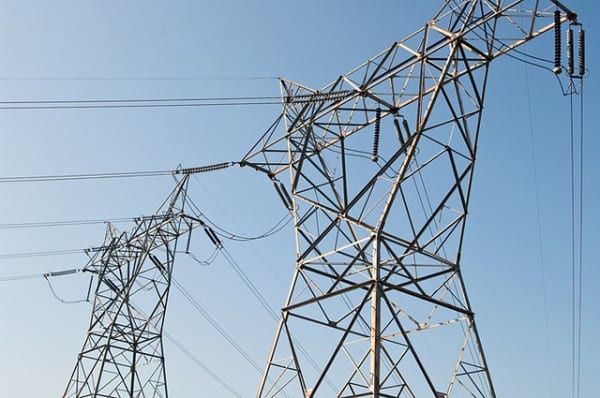The Australian Energy Regulator has drawn fire from the nation’s poles and wires businesses over a draft decision the networks say would result in the largest single cut to the amount the sector could recover on their investments in electricity and gas infrastructure.
In a draft Rate of Return Guideline, released on Tuesday, the AER says it had decided to reduce the return on debt energy network businesses could claim for the build out of more poles and wires and other network infrastructure.
The AER says it estimates that its draft guideline would result in a 45 basis point reduction in the overall rate of return for network businesses, compared to its previous determination in 2013.
The decision has been made, the regulator says, to better foster efficient investment in electricity and gas services, and to ensure the businesses acted in the consumers’ best interests, by keeping costs passed on through energy bills to a minimum.
As we have reported on RE, for a typical electricity customer, network service charges represent about half – 48 per cent – of a total electricity bill, with generation costs, transmission charges and retailer’s charges making up most of the remainder.
The AER has tried previously to reign in network costs, but has repeatedly been forced to allow for a compromise after its decisions were appealed or taken to the courts.
In theory, any cuts to the costs networks can try to recoup, should result in a reduction to consumer bills – although not a very significant one.
According to RE columnist and ITK analyst, David Leitch, the bottom line is that this AER decision would would lower network revenues by about 2-2.5 per cent a year. For a household customer it might add up to a 1 per cent cut in prices, eventually, per year.
But Energy Networks Australia says the draft determination has gone too far, and will strip about 13 per cent – or $2 billion – from network revenues over five years.
And it even argues that this latest cut to network revenues will not be in the best interests of consumers.
“Network prices and rates of return have been falling consistently for the past five years” said ENA acting CEO Tamatha Smith said in a statement on Tuesday.
“This latest proposal follows the significant cuts already imposed in 2013 and 2009 and does not deliver the predictable framework the energy network sector needs to ensure investment security – which is in the long-term interests of customers.”
Smith said network businesses had already responded to the need for lower costs to customers, by delivering efficiencies in their operations while also ensuring a reliable and safe energy supply.
“We have to achieve a balance that meets the need for business to attract lowest-cost finance for essential power infrastructure investment and to keep prices down.
“This proposed sharp reduction in the rate of return will … (make) it harder to attract capital for investments that will support strong wholesale market competition and the rapid connection of growing sources of generation throughout the grid,” Smith claimed.
“The energy sector is undergoing the most significant transformation in a century.
“We are working to modernise networks to ensure greater connectivity across the whole National Energy Market, integrating increasing household renewable systems and new large-scale generation, so customers pay less and continue to enjoy the secure, reliable energy they expect.
“We can’t do this without achieving the right balance for consumers and industry.”
Not surprisingly, the energy consumers lobby has a different view.
“Energy prices, especially electricity prices, are too high in Australia and network costs make up nearly half of a consumer’s bill. The allowed rate of return has a very big impact on those costs,” said Energy Consumers Australia acting CEO Lynne Gallagher, on Tuesday.
“Allowing gas and electricity network businesses to earn excessive returns on their investment in the poles and wires not only costs consumers too much today, but it gives these businesses an incentive to over-invest, further adding to the cost for consumers in future years.
“Existing and future investment in the power system must be optimised based on consumers’ demands that not one more dollar is spent than required, and new investments are not made one day earlier than is necessary,” she said.
“Given that the rate of return on capital makes up half of the revenue of these network businesses, consumers could expect to see significant benefits flowing through into their bills.”
According to Gallagher, the AER’s draft decision would potentially save consumers around $30-$40 a year on their power bills – but she noted that “expert evidence” presented to the Regulator could have justified an even lower allowed rate of return.
“There is no doubt that there could be some disappointment from some consumer groups with this decision, but it is a much better outcome than we’ve seen in previous years on this issue.
“At the start of this review Energy Networks Australia called upon the regulator to set an allowed rate of return that was ‘capable of acceptance,’” Ms Gallagher said. “The Regulator has done that and we look forward to the networks accepting this draft decision.”









